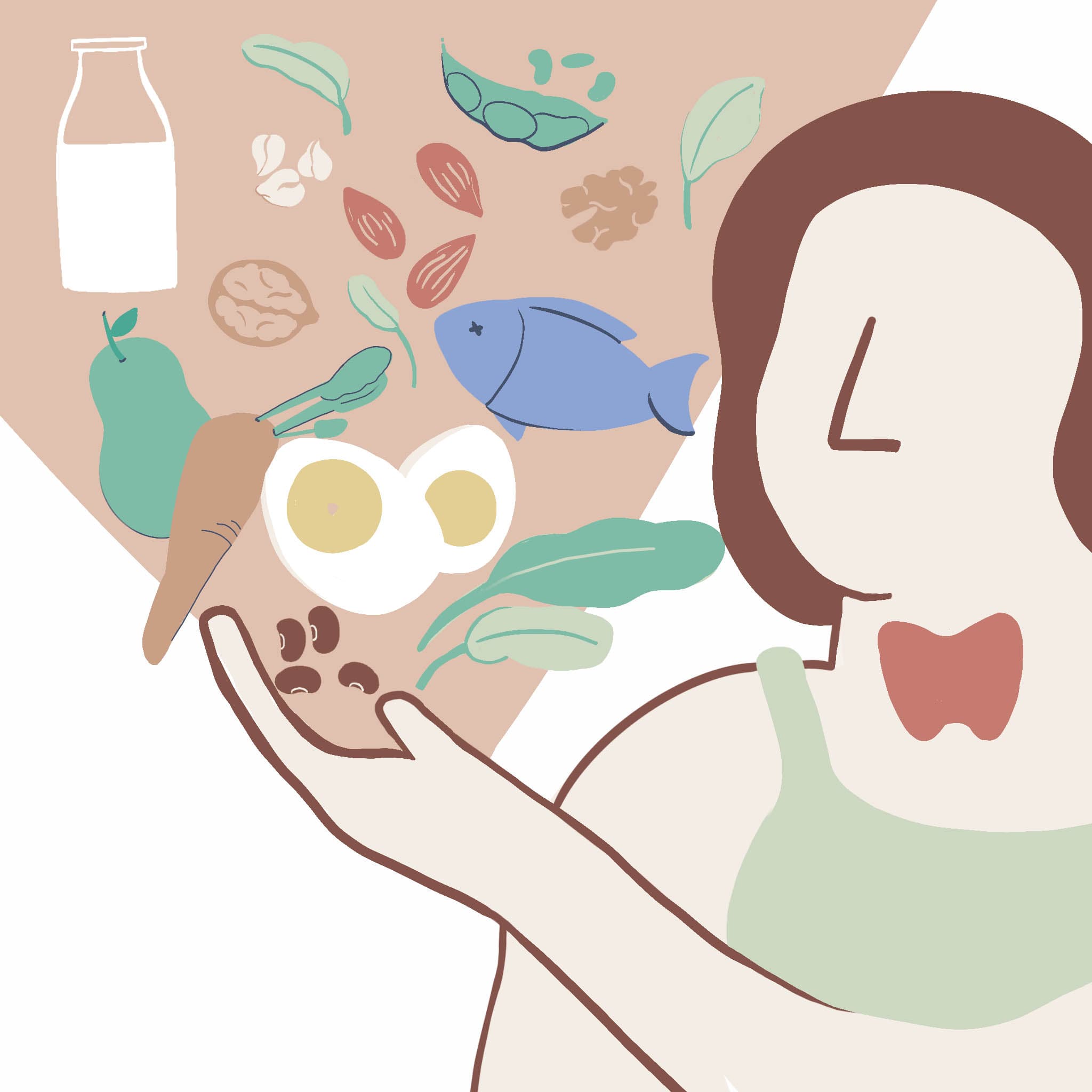Thyroid gland, thyroid hormones and its functions
The thyroid is a small butterfly-shaped gland, located in the front of the neck. It is a part of the endocrine system and releases its hormones directly into the bloodstream.
The thyroid gland and its hormones T3 (triiodothyronine) and T4 (Thyroxine) are responsible for many vital body functions like controlling our body’s metabolic rate. These hormones determine the amount of energy that our body requires to function. It also decides the various uses of the energy generated due to the consumption of food.
If you have hypothyroidism, then your metabolism tends to be lower than usual. A slower metabolism simply means the calories received through food will not be utilised optimally. Eventually, it will cause weight gain and affect the functioning of body parts like the heart and brain.
If hypothyroidism is left untreated for a long time, it can lead to several health problems like weight gain, joint pain, heart diseases and infertility. The most accurate way to detect if a person has any thyroid issue is through a blood test.
You may experience symptoms such as due to hypothyroidism like extreme fatigue, increased sensitivity to temperature, severe constipation, skin dryness, unexplained weight gain, puffiness on your face, in rare cases, a hoarse voice, joint pain, stiff movement, muscle pain, tender and stiff muscles, heavy menstrual periods, and hair loss.
In severe cases, it can also lead to mental health problems like anxiety and depression. It can also cause goitre - inflammation and enlargement of the thyroid gland.
How does our body make thyroid hormones?
The thyroid gland uses iodine from the food to make the two thyroid hormones, T3 and T4.
If you have been detected with hypothyroidism at an early stage, incorporating diet and lifestyle changes in your life can help you manage your thyroid levels and perhaps prevent you from taking medications. However, if your hypothyroidism is severe, you cannot avoid the consumption of medicines. But diet changes will certainly help in reducing the number of medications.
Which nutrients are important?
Iodine, Selenium and Zinc are the most crucial nutrients if you have been diagnosed with hypothyroidism.
Iodine
Iodine is an essential nutrient as it is a part of the chemical structure of the thyroid hormone. Hence, iodine deficiency is one of the most common reasons for an underactive thyroid gland.
How can we get iodine?
Iodine in the food comes from the soil in which it grows. If the earth itself does not have enough iodine, the foods and crops will not have enough iodine as well.
So there are iodine fortified foods available such as iodised salt. If you have hypothyroidism, you should exclusively use iodised salt.
Selenium
Selenium helps in activating the thyroid hormones for their optimal utilisation by the body. Selenium also has antioxidant benefits that protect the thyroid gland from getting damaged because of the oxidation in our body.
How can we get selenium?
Eggs, legumes, all the nuts (should be soaked overnight before consumption), deep marine fish
Zinc
Just like selenium, zinc also helps the body to activate thyroid hormones. It also helps regulate TSH, a thyroid-stimulating hormone that signals the thyroid gland to secrete its hormones.
How can we get zinc?
Shellfish, chicken, and red meat; almonds, walnuts, brazil nuts, hazelnuts
Which foods to avoid if you have hypothyroidism?
If you have hypothyroidism, you should avoid foods that contain goitrogens as they can hamper the production of T3 and T4 in our body. Even if you are consuming the below-mentioned foods, they need to be soaked or properly cooked to reduce the goitrogens in them.
Foods having goitrogens are:
Cruciferous vegetables: Cabbage, cauliflower, broccoli, bokchoy, kale.
Tip: Overcooking these vegetables will reduce the number of anti-nutrients and goitrogens to make them suitable for consumption.
Soy products: Soybean, soy milk, tofu, soya granules and chunks, soybean flour
Tip: Even soy based products should be overcooked before consumption.
Nuts: Peanuts, almonds, walnuts
Tip: Even though nuts contain goitrogens, still they are also rich in selenium and zinc, two nutrients needed for activation of the thyroid hormones. Hence, they can be soaked overnight and consumed in the morning.
Seeds: Flaxseeds
Tip: It is better to roast the flaxseeds if you want to eat them.
Millets: all varieties
Tip: It is okay to eat millet sometimes but consume it in smaller quantities.
Processed foods and carbonated drinks
These foods will spike up your insulin levels.
Fatty and fried foods
Underactive thyroid results in a slower metabolism which makes you overweight or obese. Naturally, you should avoid fatty and fried foods as that can lead to weight gain too.
If the person has an Autoimmune disorder, they should also be avoiding gluten.
Gluten rich foods: Wheat and wheat products, barley, rye, oats
Which foods to include if you have hypothyroidism?
Apart from the foods that need to be avoided, you can consume all the other foods like fruits, vegetables, dairy and all meats. Organic dairy and meat are far better than commercially bred ones.
Lifestyle changes
Lastly, along with diet changes, you should maintain an active lifestyle too. Hypothyroidism increases your risk of weight gain because you have a slower metabolic rate. So it becomes crucial to maintain a healthy weight. Having a sedentary lifestyle will negatively impact your body. Therefore, daily exercise, enough uninterrupted sleep and a healthy diet can help you stay fit. Apart from this, you should also regularly get your cholesterol levels checked.
Who is at a higher risk of getting hypothyroidism?
- Women
- People above 60 years of age
- If a person is iodine deficient
- If a woman is pregnant or delivered a child
- If a person has Autoimmune diseases like rheumatoid arthritis or celiac disease
- If there has been a partial or complete removal of the thyroid gland
- If there is a tumour on hypothalamus or pituitary gland
- If a person has hyperthyroidism and is treated with radiation or pills
Bottom line
If you have had people with hypothyroidism in your family before, it is good to get yourself tested frequently. Eat healthy, nutritious food, avoid fatty and sugary foods, have an active lifestyle to maintain a healthy weight and reduce the risk of getting hypothyroidism.
Disclaimer - This information is provided for educational purposes and should not be construed as medical advice. Please consult with your healthcare practitioners before undertaking any changes in your diet or adding supplements.
ProactiveForHer is a digital clinic for women, offering accessible, personalized, and confidential healthcare solutions. We offer products and services for out-patient health concerns of Indian women, across their lifetime - from puberty to pregnancy to menopause. To know more on the sexual and reproductive health of women, visit https://www.proactiveforher.com/

